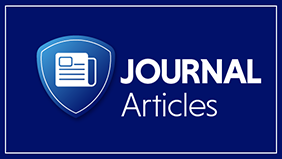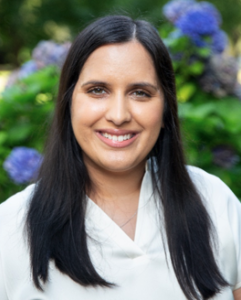
Professional Skepticism
Publication Date: November 15, 2024
By Priya Sall
Professional skepticism is challenging to develop and apply as an internal auditor. We naturally desire to trust people, especially those we know. Professional skepticism is an audit skill developed over time and constantly refined. Successful auditors are able to strike a balance between trust and skepticism, as being too trusting can lead to inadequate oversight, and being overly skeptical can lead to unnecessary procedures.
Professional skepticism is an attitude that includes a questioning mind and a critical assessment of information. Applying the right level of skepticism can be challenging. Eager auditors might be too skeptical, resulting in extra or unnecessary audit procedures and increased audit costs. Auditors with a low level of skepticism may ignore red flags that justify spending further time and attention. When an auditee has an inadequate control structure, concerning tone at the top, or other red flags, auditors should gauge their skepticism and respond accordingly. Roadblocks or challenges can also tempt auditors to settle for less, as difficulties in obtaining a higher degree of evidence might lead auditors to rationalize that what they have is good enough.
Applying professional skepticism has inherent limitations, such as the impact on audit efficiency. The more skeptical the auditor, the more time the auditor typically takes to complete an audit. When an auditor is overly concerned with completing the audit within a fixed budget or timeline, professional skepticism and audit quality may be negatively impacted. It is important that budgets and deadlines do not unduly hinder the exercise of skepticism, and supervisors should help auditors develop skepticism skills.
The following methods can be used to enhance auditors’ skepticism skills.
- Develop a questioning mindset – This is an attitude of curiosity and interest, as those who desire to satisfy curiosity naturally tend to exercise higher levels of professional skepticism. A questioning mindset requires professionals to continually ask questions and seek further clarification until they know they have the necessary information.
- Suspend judgment – Wait until you are sure before reaching a conclusion. Just as you would not go in with the expectation that everything is wrong, do not assume everything is necessarily correct.
- Assess evidence gathered and reach an independent judgment based on that evidence – Do not get caught up in groupthink. This means maintaining awareness and attempting to overcome judgment traps.
- Hone self-confidence – Self-confidence describes the ability of a professional to act upon the information obtained. Sometimes, it is easier to follow the tide even when you know something does not feel right in your gut. If it does not feel right, it probably is not, and you need to keep digging until you are satisfied.
- Use case studies and simulations – Practice applying professional skepticism using past scenarios and simulated audit engagements.
- Encourage group discussions and brainstorming sessions – Allowing auditors to discuss and challenge each other’s assumptions and judgments fosters a skeptical mindset.
- Engage in critical thinking exercises – Provide auditors with exercises that require them to analyze and evaluate information critically, and to consider alternative explanations and potential biases.
- Train on cognitive biases – This involves raising awareness of common cognitive biases influencing judgment and decision-making, plus providing strategies to mitigate their impact.
- Engage in continuous professional development – Continuous training keeps auditors updated on emerging issues and supports a balanced level of professional skepticism.
Professional skepticism can be learned just as it can be taught. Auditor working practices and supervisor mentorship must support and encourage skepticism. Learning the right questions to ask, verifying the answers, and knowing when to move on requires balance. Achieving a balanced level of professional skepticism at the onset of every audit supports the audit’s value.
About the Author

Priya Sall, CFE, is the Senior Internal Auditor at Western Washington University, where she has worked since 2022. Previously, she was an assistant state auditor and audit manager for the Office of the Washington State Auditor. Priya has volunteered for ACUA throughout the years by serving as the Kickstarter Program Director and a member of the Diversity & Inclusive Leadership Committee. She can be reached at sallp@wwu.edu.
From This Issue
- Improving Communication by Reducing Ambiguity in Policies
- Going back to basics: Higher education internal audit challenges, risks and strategies
- Game Changers: Navigating Audits during Athletics Transformation
- Auditing Campus Space Utilization
- Understanding the IIA’s Proposed Topical Requirement for Cybersecurity
- Navigating the Update: Implementing NIST CSF 2.0 in Higher Education
- ACUA Committee Updates – Fall 2024
- ACUA 2024 Award Winners and Board Members
- Letter from the President – Fall 2024
- Letter from the Editor – Fall 2024
